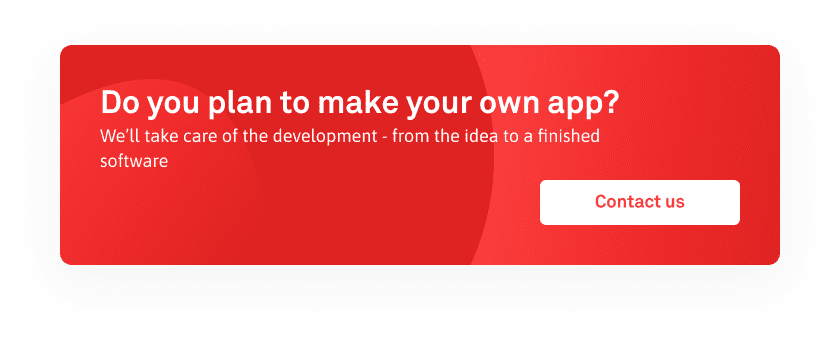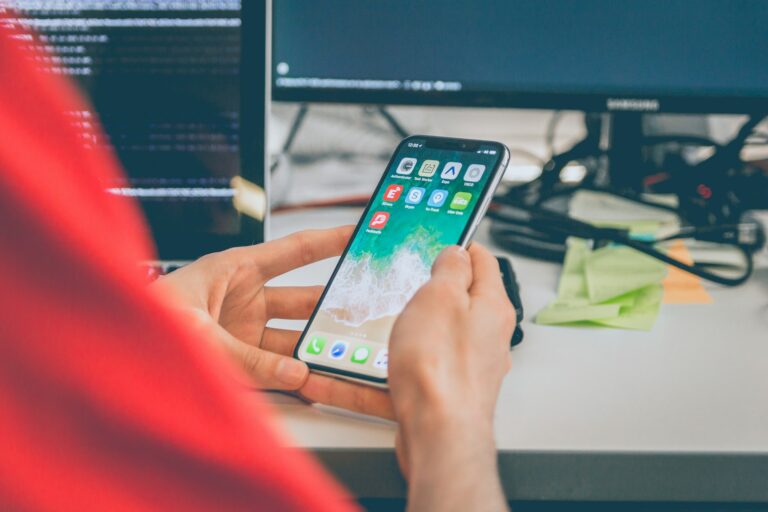In today’s digital world, users are becoming more and more dependent on mobile apps. We use apps to get directions to nearby restaurants, connect with friends halfway around the world, increase productivity at work, and even entertain ourselves when bored.
The dependency on mobile apps has led users to demand their apps to be available both online and offline. This is a crucial part of the user experience today, especially since many people won’t always have access to the internet.
As a mobile app owner, there’s no worse nightmare than having an internet connection come between your app and its users. It causes a wide range of issues with the user, including difficulty connecting, slow connections, and eventually, an uninstall due to a lack of app reliability.
If you’re considering having a mobile app developed for your business or brand, it’s essential you examine the possibility of offline mode — that way users can use the app whenever and wherever.
Understanding Offline Mobile App Development
Introducing offline mode is easier said than done, but the right app developer can make this a reality for any app. Essentially, you’ll have to find a way to store certain data locally until the user finds an internet connection again.
To help you better understand how an offline mobile app works, we first need to understand how mobile apps typically work when an internet connection is present.
How do online mobile apps work?
There are various ways to connect to the internet, whether you’re using a cellular network or a WIFI connection. It has become one of the first things people search for when they enter a new location, whether it be a restaurant, hotel, friend’s house, or work.
When a mobile device connects to the internet, the possibilities are endless. Every app you’ve installed will be craving attention and waiting for you to open it. Once opened, the device will generally use data and code stored through the cloud.
Many users prefer this because it bypasses having to store large amounts of data on the mobile device itself. As we all know, memory on mobile devices is viewed as sacred and users are always delegating it wisely.
Simply put, an app that takes up too much space won’t be installed for long.
How do offline mobile apps work?
At the same time, online mobile apps present one major problem — what happens when an internet connection isn’t available? It’s the same conundrum we find ourselves in when we need to make a phone call without a cellular signal.
To solve this, mobile app developers can simply have all the data stored locally on the device itself. This would bypass the need for connecting to the cloud, but wouldn’t solve the enormous amount of storage the app would take up.
This is where some apps take it a step further by finding a way to store certain data through the cloud, store certain data locally on the device, and then sync the two once an internet connection is restored. This allows the user to enjoy the app with or without a connection.
What Makes An Offline Mobile App So Special?
When a mobile app can be used whenever and wherever, it will immediately present a variety of benefits other mobile apps can’t offer. As a crucial part of the user’s experience, it will lead to more downloads, better ratings, and a successful app overall.
In fact, an offline mobile app is really a win-win for the user and app owner. Let’s first take a look at some of the benefits on the user’s side:
- Users can use your app if they have no internet connection whatsoever — even if they’re on an airplane without WIFI!
- If users are in an area with a bad connection, it won’t cause the app to slow down and will keep the user experience at a constant.
- Offline mobile apps provide an excellent user experience, which is the goal of every and any app out there.
- Users won’t have to deal with cellular data usage and roaming costs when traveling, which pile up rather easily.
- Offline apps help save on battery life for most mobile devices.
On the other hand, mobile apps also benefit the app owner in a variety of ways:
- If you want a five-star rating in the app store, offering an offline mobile app is a step in the right direction.
- Users will become loyal to your app and will prefer it over your competitor’s similar app.
- More downloads means more opportunity to monetize your app and increase revenue.
- Users will have a reason to recommend it to other users looking for an app with its ability.
- Become a leader in your industry, pave the way for other apps, and set the standard for future brands.
A mobile app that’s only available through an internet connection is a mobile app that limits the user. In today’s digital world, users don’t want to feel limited. In fact, they want the exact opposite — they want to feel free, no strings attached, limitless.
Offering an offline-first mobile app can be one of the best decisions you make in the mobile app development process. It’s essential to put your users first and it’s no secret that this is what the users are demanding.
If you’re building a mobile app and want to learn more about how offline mode can be possible for your project, contact us today. We believe offline mode should be a realistic option for any brand or business owner, so let us help you make it a reality!
—
Photo By ImYanis on Shutterstock



